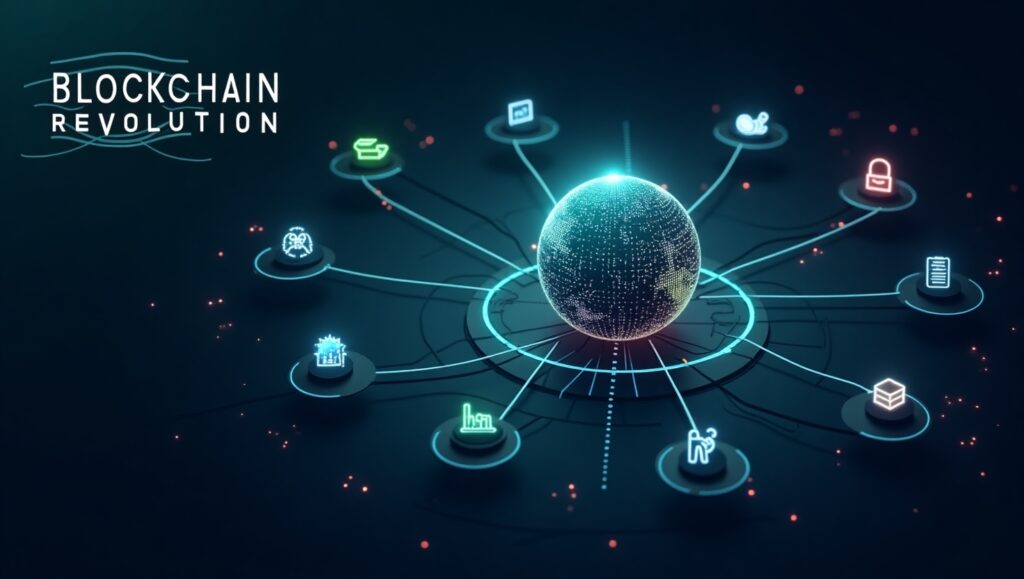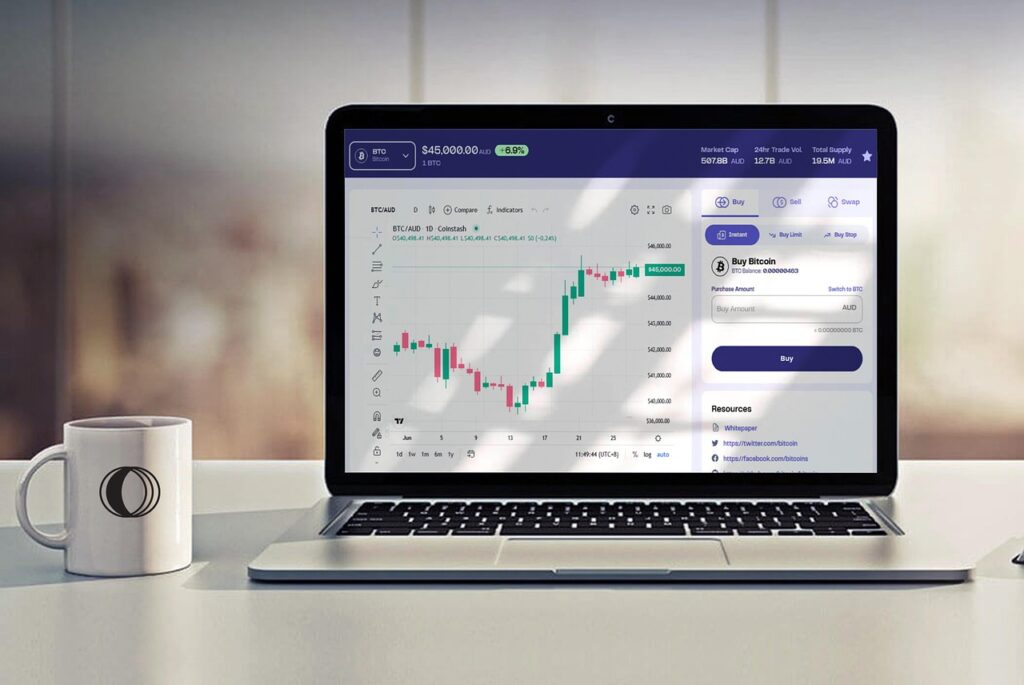blockchain

Introduction: see
Why Governments Are Turning to Blockchain
Blockchain technology has made headlines over the past decade for its potential to disrupt industries from finance to healthcare. But one area where it’s quietly creating a massive impact is in government. If you’ve been wondering how blockchain is used in government use case scenarios, this blog post is your comprehensive guide. We’ll walk through how this technology is changing the way public institutions operate, make decisions, and serve citizens. how-blockchain-is-used-in-government-use
Governments around the world are exploring blockchain for one simple reason: trust. In an age where transparency, accountability, and data security are more critical than ever, blockchain provides a framework that enhances all three. Let’s dive into the specific areas where blockchain is making a difference in public sector operations.
1. Public Records & Identity Management
One of the most promising uses of blockchain in government is managing public records. Traditionally, records like birth certificates, marriage licenses, and land titles are stored in centralized databases that are vulnerable to tampering and loss. how-blockchain-is-used-in-government-use
With blockchain, these records can be stored in a decentralized and immutable ledger. That means once a record is created, it cannot be altered or deleted without leaving a trace. Countries like Estonia and Dubai are already leveraging blockchain for digital identity systems, allowing citizens to access everything from healthcare to tax services securely and efficiently.
Benefits:
- Prevents document fraud
- Simplifies citizen access to services
- Reduces administrative overhead
2. Blockchain in Voting Systems
Election security has become a hot topic globally. One way to build public trust in elections is to make the voting process transparent and tamper-proof exactly what blockchain offers.
Blockchain-based voting systems allow for end-to-end verifiability. Voters can confirm their vote was counted without revealing their identity. West Virginia conducted a pilot program using blockchain for overseas military voters, and several other countries are researching similar applications.
Benefits:
- Transparent and auditable elections
- Reduces voter fraud
- Enhances participation through remote voting
3. Taxation & Financial Transparency
Tax collection and budget allocation are critical functions of any government. However, they are often plagued by inefficiencies and corruption. Blockchain can streamline the taxation process by automating compliance and making the flow of funds completely transparent.
Smart contracts can also be used for budget disbursement. For instance, funds for a school lunch program could be programmed to release only when certain conditions are met, like delivery confirmation or student attendance.blockchain
Benefits:
- Reduces tax evasion
- Enhances accountability in public spending
- Facilitates real-time auditing
4. Government Procurement and Supply Chain Transparency
Public procurement processes are often opaque and susceptible to corruption. Blockchain introduces end-to-end visibility in government supply chains, ensuring that contracts are fulfilled as promised and that products meet quality standards.
For example, defense departments can track equipment from manufacturer to battlefield, verifying authenticity and reducing the risk of counterfeit parts.
Benefits:
- Increases trust in procurement
- Reduces fraud
- Enhances supplier accountability
5. Legal and Judicial Use Cases
The legal system can also benefit from blockchain. One application is in maintaining the chain of custody for digital evidence. With blockchain, evidence logs can be immutable, ensuring that files have not been altered from the time they were collected.
Additionally, smart contracts could be used to enforce legal agreements automatically. For example, if two parties agree on a digital contract, the blockchain can execute the terms without further human intervention.
Benefits:
- Preserves integrity of legal documents
- Reduces courtroom disputes over evidence
- Streamlines legal processes
6. Healthcare Data Management
Government-run healthcare systems are burdened with mountains of patient data. Traditionally, this data is siloed, making it hard for different departments to access and share crucial information. blockchain
Blockchain can create unified, secure medical records accessible only to authorized personnel. During the COVID-19 pandemic, some governments used blockchain to manage vaccine distribution and verify health credentials. blockchain
Benefits:
- Enhances patient data security
- Enables seamless inter-agency collaboration
- Reduces administrative duplication

7. Distribution of Welfare and Social Services
Welfare fraud is a significant issue for governments. Blockchain allows for more secure and conditional distribution of benefits. Through smart contracts, governments can ensure that social services reach the intended recipients without intermediaries. blockchain
India, for instance, is experimenting with blockchain to distribute subsidies and pensions directly to citizens, cutting down on corruption and leakages.
Benefits:
- Ensures benefits reach the right people
- Reduces fraud and misuse
- Improves service delivery speed
8. Smart Cities and Urban Governance
Smart cities leverage data to manage everything from traffic lights to energy grids. Blockchain can provide a secure backbone for this data exchange. It can help in citizen engagement platforms where residents vote on community budgets or report issues.
Additionally, property and utility management systems can be streamlined through blockchain, ensuring transparent records of usage and payments. blockchain
Benefits:
- Enhances urban efficiency
- Encourages citizen participation
- Improves infrastructure transparency
9. Immigration and Border Control
Managing immigration is complex and often hampered by slow data sharing between countries and agencies. Blockchain can simplify this by storing verifiable records of travel, visas, and biometric data.
This could allow for faster processing times and more secure international cooperation, especially in managing refugee populations or cross-border crime.
Benefits:
- Enhances border security
- Reduces processing time
- Enables secure data sharing
10. Environmental Monitoring and Climate Action
Governments are increasingly responsible for monitoring environmental metrics like carbon emissions, water usage, and pollution levels. Blockchain can be used to track these metrics transparently and ensure that climate agreements are adhered to.
For example, carbon credits could be issued and traded on a blockchain to ensure legitimacy and prevent double-counting.
Benefits:
- Transparent environmental reporting
- Encourages corporate accountability
- Facilitates international climate agreements
11. Challenges in Implementing Blockchain in Government
While the potential is huge, there are significant challenges. Blockchain systems require considerable technical infrastructure and talent, which many government agencies lack. Regulatory uncertainty and interoperability issues can also slow down adoption.
Moreover, public resistance to change, especially around data privacy, must be addressed. A poorly implemented system can cause more harm than good. blockchain
Challenges:
- High initial costs
- Technical complexity
- Resistance from stakeholders
12. The Future of Blockchain in Government
Blockchain technology is gradually transforming from a disruptive concept into a foundational tool for digital governance. While implementation hurdles—such as scalability, interoperability, and legal uncertainties—remain, the momentum is unmistakable. Increasingly, pilot projects are evolving into fully integrated government systems, and collaborative efforts between countries and international bodies are fostering the development of global blockchain standards.
Emerging Use Cases
- Digital Identity and Blockchain Passports.how-blockchain-is-used-in-government-use. blockchain
Governments are exploring blockchain to create tamper-proof digital identities and blockchain-based passports. These systems promise better security, reduced fraud, and more control for citizens over their personal data. - Cross-Border Data Exchange
Blockchain can facilitate secure, verifiable data exchange between governments, enhancing cooperation in areas like customs, immigration, healthcare, and taxation, while minimizing red tape and fraud. - Decentralized Voting Platforms
Blockchain voting offers the potential for transparent, tamper-resistant elections, increasing citizen trust and participation. Countries like Estonia and Switzerland have already piloted such systems. - Supply Chain Transparency in Public Procurement
Blockchain can bring real-time tracking and accountability in government supply chains, reducing corruption and improving efficiency in sectors like defense, healthcare, and infrastructure. - Welfare and Aid Distribution
Blockchain-enabled smart contracts can automate and ensure the transparent distribution of social benefits and international aid, ensuring resources reach intended recipients without leakage or mismanagement. - Land and Property Registries
Several governments (e.g., Georgia, Sweden, India) are using blockchain to maintain immutable land registry records, reducing disputes and improving citizen confidence in property rights.
Benefits for Governments and Citizens
- Improved Transparency and Accountability: Immutable records prevent manipulation and fraud.
- Efficiency Gains: Automating bureaucratic processes reduces costs and administrative burdens.
- Citizen Empowerment: Individuals gain more control over personal data and can verify transactions independently.
- Interoperability: Standardized blockchain protocols enable seamless data exchange between different agencies and countries.
Challenges to Address
- Regulatory and Legal Uncertainty: Existing laws may not yet accommodate decentralized technologies.
- Data Privacy and Governance: Governments must ensure compliance with data protection laws while leveraging transparency.
- Technological Barriers: Issues like blockchain scalability, energy consumption, and integration with legacy systems must be resolved.
- Digital Divide: Equitable access to blockchain services requires addressing disparities in digital infrastructure and literacy.
Long-Term Outlook
- Widespread Sectoral Adoption: From healthcare to education, blockchain will underpin many core government functions.
- Global Standards and Interoperability Frameworks: Initiatives from the EU, UN, and WEF point to coordinated global efforts.
- Digital Nation-States: Countries could eventually adopt fully digitized governance models, with blockchain at the core.
- Increased Citizen Trust: Transparent and verifiable government processes can help rebuild trust in public institutions amid rising concerns about corruption and inefficiency.
Conclusion: Transforming Governance Through Blockchain
Blockchain is more than just a buzzword it’s a foundational technology that has the potential to revolutionize how governments function. From voting and taxation to welfare and environmental protection, the applications are vast and growing.
Understanding how blockchain is used in government use case scenarios helps us appreciate the shift toward more transparent, efficient, blockchain and accountable public services. As more governments experiment and learn, we’re likely to see a transformation in how public trust is built and maintained in the digital age.
Whether you’re a policymaker, a tech enthusiast, or a curious citizen, one thing is clear: the blockchain government revolution is already underway. blockchain. see



updyj8